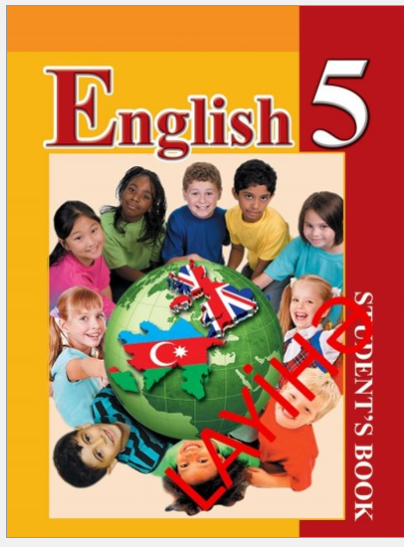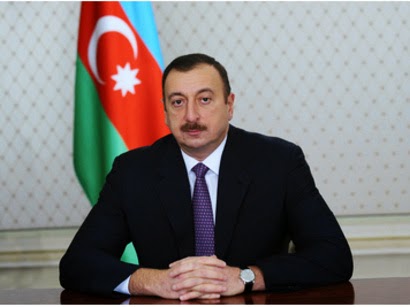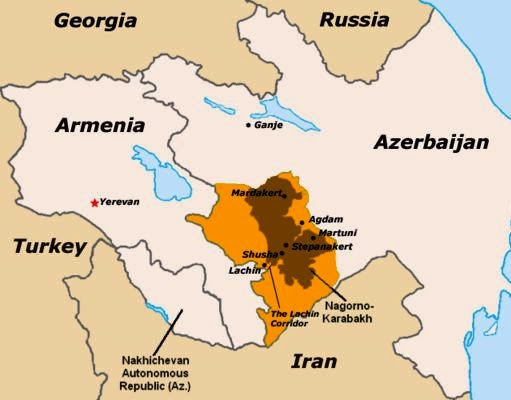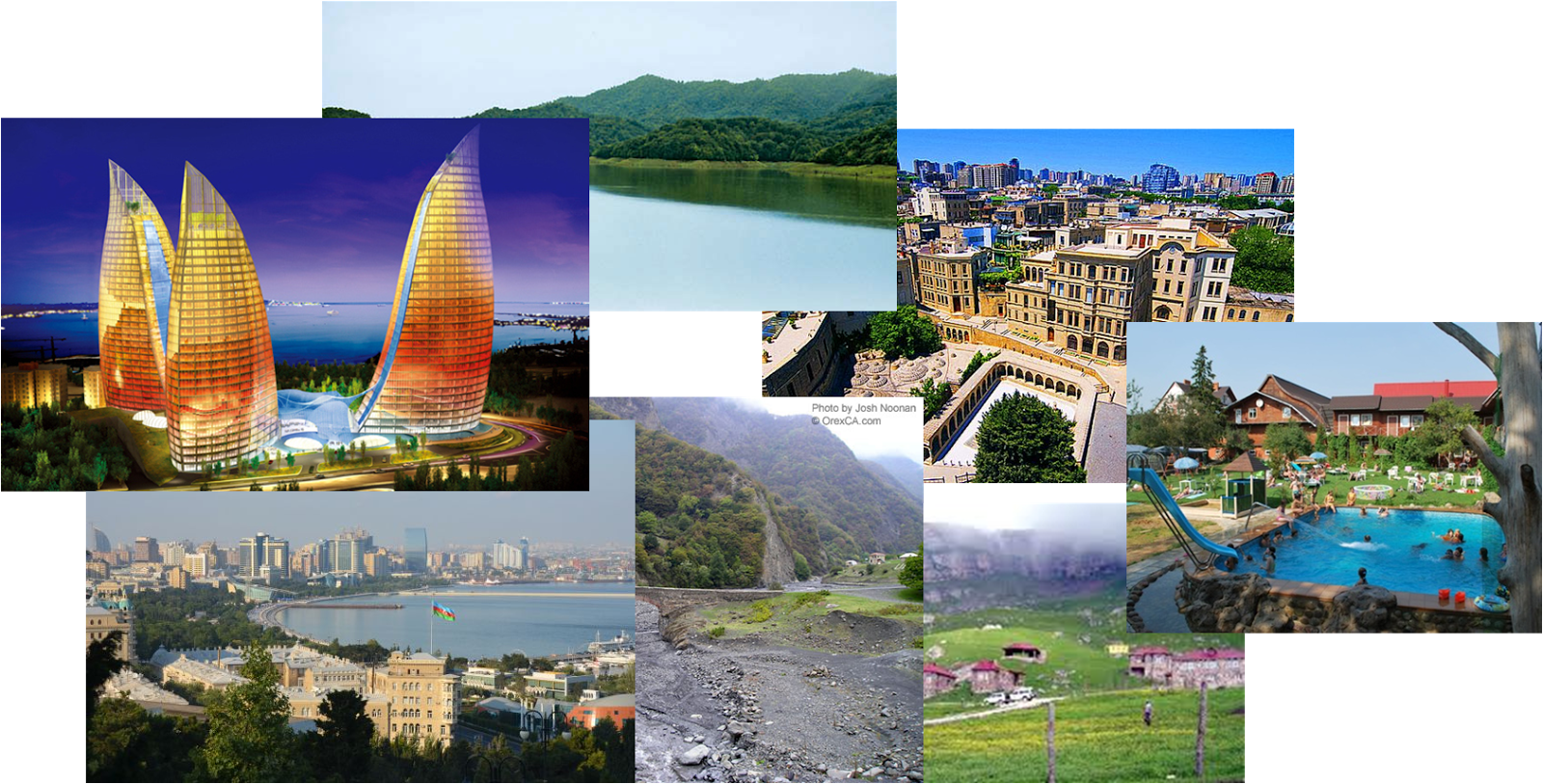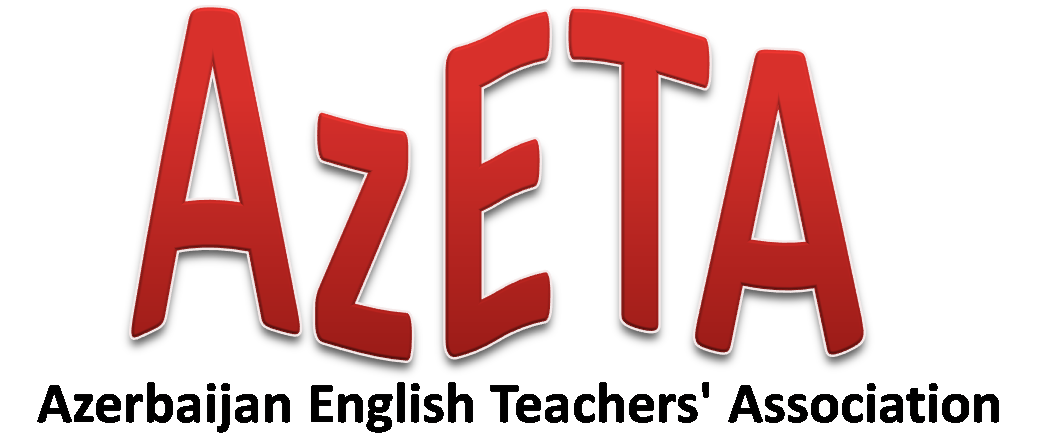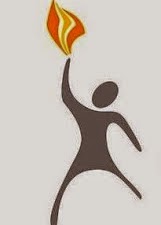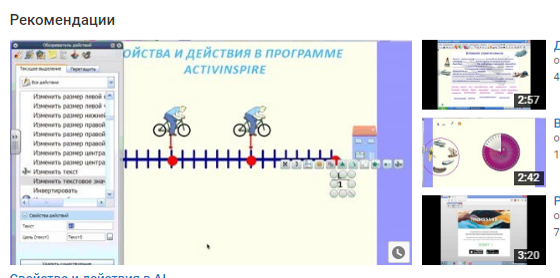Independence Day is a working day in Azerbaijan.
Saturday 18 October 2014
October 18 - Azerbaijan's Independence Day
Today - October 18 - is marked as the State Independence Day in Azerbaijan.
Thanks to favorable historical condition established after collapse of the Soviet Union in late 20th century Azerbaijani people gained its independence in the 20th century for the second time. It was the second prominent achievement in Azerbaijani people's political history.
As a result of the activity of the democratic powers i n Russia it was impossible to suppress non-subordination to the central power and independence wish in the republic. At the extraordinary meeting called under the people's will on June 30, 1991, the Supreme Council of the Azerbaijani Republic adopted a declaration about restoration of Azerbaijan's state independence.
Constitutional Act "About the State Independence of the Republic of Azerbaijan'" was adopted at the session of the Supreme Council of the Azerbaijani Republic on Oct.18, 1991.
The referendum was held in Azerbaijan on Dec.29. The referendum's bulletin reflected a question: "Do you support the Constitutional Act "About the State Independence of the Republic of Azerbaijan" adopted by the Supreme Council of the Republic of Azerbaijan?"
The Azerbaijan people unanimously supported the state independence.
In May 1992 Azerbaijani parliament adopted the State Hymn (music by Uzeyir Hajibeyov, words by Ahmed Javad) of the Azerbaijan Republic and soon after it, three colored flag and the state anthem in the form of eight-point star with fire in the centre of it.
Azerbaijan is an independent and a sovereign state since Oct.18, 1991 and people celebrate it as a holiday.
Independence Day is a working day in Azerbaijan.
Independence Day is a working day in Azerbaijan.
Sunday 5 October 2014
Teachers' Day
In many countries, Teachers' Days (or Teachers Day) are intended to be special days for the appreciation of teachers, and may include celebrations to honour them for their special contributions in a particular field area, or the community in general. The date on which Teachers' day is celebrated varies from country to country. Teachers' days are distinct from World Teachers' Day which is officially celebrated across the world on October 5.
Between 1965 and 1994 Teacers' Day was celebrated on the first Sunday of October.But since 1994 , on October 5, it has coincided with the World Teachers' Day and we began celebrate Teachers' Day on this day.
Saturday 4 October 2014
Kurban holiday in Azerbaijan
According to the Holy Scripture its history of celebration dates back to a well-known story when Archangel Jabrail brought Prophet Ibrahim a message where Allah asked him to sacrifice Ismail, Ibrahim’s only son. The Prophet did not dare to contradict the God’s message, brought his son to the Min valley, occupied now by Mecca, and started preparation for sacrificial offering. Ismail himself did not resist as he was faithful to Allah and to his father. However, when the last moment came, Allah, having satisfied himself with the Prophet’s loyalty, deprived his knife an ability to cut and Archangel Jabrail sent the Prophet a sheep that was immolated instead. Thus God manifested his mercy and that the Muslims must follow his dictations in spite of their complicacy.
By tradition, the main celebration of Kurban Holiday (Eid al-Adha) is held in Mecca at the end of pilgrimage. The day before the holiday the believers climb Arafat Mountain and next day perform Tavaf, seven rounds around the Holy Caaba, and sacrifice a sheep, cow or camel. However it is customary to celebrate the Holiday wherever a Muslim was.
Sunday 14 September 2014
Azerbaijan celebrates Knowledge day
14/09/2014 22:03
 According to Minister of Education Mikayil Jabbarov, the first lesson will be dedicated to patriotism. Over 139,000 pupils entered the elementary schools for the school year of 2014-2015.
According to Minister of Education Mikayil Jabbarov, the first lesson will be dedicated to patriotism. Over 139,000 pupils entered the elementary schools for the school year of 2014-2015.
In these new academic years, SABAH groups will operate in the high schools for the first time. 738 best students elected on specialists will be taught in these groups.
For the first time, 7.8 mln textbooks under 271 titles were published this year. The textbooks have already bee delivered to all schools.
1,692 new teachers will work for the first time. They will start their work after swearing.
201 school-leaver having gold and silver medals will be among the students of high schools.
Baku police will tighten measures on start of new academic years.
Wednesday 28 May 2014
May 28 - Day of Proclamation of the Azerbaijan Democratic Republic
Republic Day is a national holiday in Azerbaijan, observed annually on 28 May. This was the day in 1918, when the Azerbaijan Democratic Republic was proclaimed for the first time. It is one of the brightest pages in the history of Azerbaijani people, which commemorated the country unification.
This holiday in Azerbaijan is also called Azerbaijan national identity restoration day, because for a long time, Azerbaijan was first under rule of Iran, then that of the Russian Empire. It was not until 1918 after the revolution in Russia and long-lasting national liberation struggle of the Azerbaijani people, when the National Council of Azerbaijan, headed by Mamed Emin Rasulzade proclaimed a state sovereignty. The Declaration of Independence signed on 28 May 1918 in the building of former Palace of the Governor in the Caucasus in Tiflis, contained the fundamental provisions as follows:
1. From now onward the Azerbaijan people is a repository of sovereign rights, while Azerbaijan covering Eastern and Southern Transcaucasia is a fully legitimate independent state.
2. The form of political order of the independent Azerbaijan is a democratic republic.
3. The Azerbaijan Democratic Republic is striving to establish good neighbor relations with all members of international community, especially with bordering nations and states.
4. The Azerbaijan Democratic Republic guarantees within its competence civil and political rights to all the citizens irrespective to their nationality, confession, social status and sex.
5. The Azerbaijan Democratic Republic grants wide freedom for free development to all the nationalities inhabited its territory.
These provisions still constitute the basis of the Azerbaijan state structure that is why Republic Day is one of the country’s most important public holidays, officially observed since 1992.
Saturday 10 May 2014
Azerbaijan celebrates Flowers Festival today
Beginning from 2004, every year, on 10 May, the executive power of Baku holds a number of events on the birthday of National Leader of Azerbaijan Heydar Aliyev.
The main part of these events is the Flowers Festival which is held In every district of the capital city, in places where Baku residents and guests take a rest and which gathers hundreds of thousands of people countrywide but the festival brings the biggest joy to children.
The events are held within the whole day.
Friday 9 May 2014
May 9 - Victory Day in Azerbaijan
May 9 - Victory Day in Azerbaycan.
Victory Day over Nazism is one of the most remarkable national holidays for Azerbaijan. On 9 May the Azerbaijan people commemorate the perished; laying wreathes and flowers to a Unknown Soldier's Grave, and also congratulate the surviving battle-front veterans. 9 May in Azerbaijan is a public day.
Thursday 8 May 2014
Shusha: 22 years under Armenian occupation
Twenty two years have passed since the occupation of Azerbaijan's beautiful and ancient town Shusha by Armenian armed forces.
Shusha, the cultural center and capital of the historical Karabakh Khanate, fell victim to the Armenian aggression on May 8, 1992, when 290 sq. km of Azerbaijan's territory went to the control of the Armenian invaders.
On this day, the armed forces of Armenia seized Shusha with the aid of the Soviet 366th regiment, killing and disabling hundreds of innocent Azerbaijani civilians, expelling the entire population of the town, and destroying, burning down and looting numerous cultural, religious and historical monuments.
As a result of the occupation of Shusha, 195 civilians were killed, 165 others wounded, 22,000 displaced and 68 taken hostage by the Armenians. Their fate is unknown to this day.
Wednesday 7 May 2014
Monday 5 May 2014
Eurovision 2014 underway in Copenhagen
The opening ceremony of the Eurovision was held in the Copenhagen City Hall on May 4 attended by different artists and delegations.
Azerbaijan's representative in the competition, Dilara Kazimova said, "My song is not a love song only, it has a deeper meaning. It's about the love for a whole humanity."
Dilara, who will present the country at the first semi-final on May 6, was very busy in the last couple of days, participating in different events in Copenhagen right after her promo tour. She gave a press conference, met with her fans, and had two rehearsals.
At her second dress rehearsal, Dilara had a brilliant performance. She was accompanied by a talented trapeze dancer. The singer and the dancer both were dressed in dark red, which gives the impression that Dilara's musical performance is being mirrored in an acrobatic way.
Dilara's performance is directed by Swedish director and dancer Asa Engman in cooperation with Polish-Japanese choreographer Piotr Torazawa Giro.
During the whole performance, the light on the stage flames up and finally burning towards the end of the song, changing the stage into a dark red with ice crystals reflected into the background.
Acrobatics aerial will not be repeated so every performance will look special and unique.
Speaking at the press conference, the singer said, "The words of the song "Start a Fire" resemble a poem or even a prayer. The song is very special and we wanted to create the same unusual performance."
Dilara has also presented to journalists a unique souvenir - her full copy created with a 3D printer in color. Such an exclusive gift was given to Dilara by technology-friendly fans from 3D Hubs Copenhagen.
Dilara enjoys a chance to combine her two passions in life music and love for animals, and plans to sell her 3D copy on eBay and collected funds will be sent to a Danish animal shelter Dyreværnets.
The singer is an activist for animal protection in Baku. Dilara, who has beautiful dog and cat back in Baku, does not wear fur and takes part in charity events aimed to raise awareness on animal rights in society.
Dilara will perform her strong and touching ballad the eight at the day. The singer's operatic training gives her impressive vocal diversity and permits a repertoire that ranges from soul to opera, jazz, and pop.
The singer has already participated twice in the national selection of Eurovision, reaching the final stage in 2008 and 2010. She is also the prizewinner of the "New Wave 2010" contest in Yurmala, Latvia.
Azerbaijan will participate in the ESC for the seventh time this year. The country debuted at the ESC in 2008 and has always presented a remarkable show.
Teaching Small Classes
Most teachers would agree that teaching a small class comes with many benefits. Teachers can offer one-on-one assistance at times and are more likely to meet the individual needs of their students. Some teachers, however, find it quite challenging to keep their students interested and excited about learning in a small class. Depending on the location you are teaching in, small classes range from about three to seven students. In countries where large classes are the norm, classes of twenty may still be considered small. There are numerous coping strategies and activities that teachers can use to deal with the challenges of timing and student engagement.
Advantages of Teaching Small Classes
- Comfort: Teachers and students often feel more comfortable when the class size is smaller. Students generally feel more comfortable voicing their questions and opinions.
- Students' needs met: Teachers can design customized lessons to meet the needs and interests of all of the class members.
- Student centred: Teaching is student centred and often more communicative than is possible in large classes. Students also have more opportunity to speak.
- Space: Students have plenty of space to move around in the classroom. Teachers can also arrange excursions (or suggest spontaneous ones) outside of the classroom where students can be exposed to real world English.
- Attendance: Class attendance is usually high because students know they will be missed if they are absent. They also feel like they belong to the group.
- Tasks Completed: Assignments and homework are more likely to be completed because the teacher is more likely to check.
- Preparation time: Less preparation time is required for photocopying. There are generally enough textbooks to go around so photocopying is limited to extra activities.
- Detailed Feedback: Teachers have time to provide detailed feedback when marking assignments and tests, so students get a better sense of how they are improving and where they need to work harder. Teachers also have more time to answer questions before, during, and after class
Challenges of Teaching Small Classes
Sunday 4 May 2014
Haydar Aliyev and Azerbaijan
Aliyev Heydar Alirza oglu
 Heydar Alirza oglu Aliyev was born on 10 May 1923 in Nakhchyvan City of Azerbaijan. In 1939, after graduating from the Nakhchyvan Pedagogical School he studied at the Architecture Department of the Azerbaijan Industry Institute (present Azerbaijan State Oil Academy). The incipient war impeded to complete his education.
Heydar Alirza oglu Aliyev was born on 10 May 1923 in Nakhchyvan City of Azerbaijan. In 1939, after graduating from the Nakhchyvan Pedagogical School he studied at the Architecture Department of the Azerbaijan Industry Institute (present Azerbaijan State Oil Academy). The incipient war impeded to complete his education.
From 1941, Heydar Aliyev headed the department at the People’s Commissariat of Internal Affairs of the Autonomous Soviet Socialist Republic of Nakhchyvan and in 1944 was sent to work at the state security bodies. Heydar Aliyev, working since that time in the security bodies, from 1964 held the post of deputy chairman, and from 1967 chairman of the Committee of State Security under the Cabinet of Ministers of the Republic of Azerbaijan, and he was conferred the rank of lieutenant general. These years, he received special higher education in Leningrad (present St Petersburg), and in 1957 he graduated from the History Department of the Azerbaijan State University.
Education in Azerbaijan
"I would encourage our youth to learn as many foreign languages as possible. but prior to that ambitious goal, they all should know their own language--Azerbaijani. They should feel it as a mother language and be able to think in it. I wish for the day when our youth can read Shakespeare in English, Pushkin in Russian, and our own Azerbaijani poets, Nizami, Fuzuli and Nasimi, in Azerbaijani."
Heydar Aliyev, Azerbaijan's President, in a televised forum on "Youth" in Baku (February 2, 1996).
History of Azerbaijan Education
History of Azerbaijan Education
In the pre-Soviet period, Azerbaijani education included intensive Islamic religious training that commenced in early childhood. Beginning at roughly age five and sometimes continuing until age twenty, children attended madrasahs, education institutions affiliated with mosques. In the seventeenth and eighteenth centuries, madrasahs were established as separate education institutions in major cities, but the religious component of education remained significant. In 1865 the first technical high school and the first women's high school were opened in Baku. In the late nineteenth century, secular elementary schools for Azerbaijanis began to appear (schools for ethnic Russians had been established earlier), but institutions of higher education and the use of the Azerbaijani language in secondary schools were forbidden in Transcaucasia throughout the tsarist period. The majority of ethnic Azerbaijani children received no education in this period, and the Azerbaijani literacy rate remained very low, especially among women. Few women were allowed to attend school.
In the Soviet era, literacy and average education levels rose dramatically from their very low starting point, despite two changes in the script, from Arabic to Latin in the 1920s and from Latin to Cyrillic in the 1930s. According to Soviet data, 100 percent of males and females (ages nine to forty-nine) were literate in 1970. According to the United Nations Development Program Report 2009, the literacy rate in Azerbaijan is 99.5 percent.
During the Soviet period, the Azerbaijani education system was based on the standard model imposed by Moscow, which featured state control of all education institutions and heavy doses of Marxist-Leninist ideology at all levels.
Since independence, one of the first laws that Azerbaijan's Parliament passed was to adopt a modified-Latin alphabet to replace Cyrillic. Other than that the Azerbaijani system has undergone little structural change. Initial alterations have included the reestablishment of religious education (banned during the Soviet period) and curriculum changes that have reemphasized the use of the Azerbaijani language and have eliminated ideological content. In addition to elementary schools, the education institutions include thousands of preschools, general secondary schools, and vocational schools, including specialized secondary schools and technical schools. Education through the eighth grade is compulsory. At the end of the Soviet period, about 18 percent of instruction was in Russian, but the use of Russian began a steady decline beginning in 1988. Today English and Russian are taught as second or third languages.
From Wikipedia.
Friday 2 May 2014
Change in Student and Teacher Roles
 When students are using technology as a tool or a support for communicating with others, they are in an active role rather than the passive role of recipient of information transmitted by a teacher, textbook, or broadcast. The student is actively making choices about how to generate, obtain, manipulate, or display information. Technology use allows many more students to be actively thinking about information, making choices, and executing skills than is typical in teacher-led lessons. Moreover, when technology is used as a tool to support students in performing authentic tasks, the students are in the position of defining their goals, making design decisions, and evaluating their progress.The teacher's role changes as well.
When students are using technology as a tool or a support for communicating with others, they are in an active role rather than the passive role of recipient of information transmitted by a teacher, textbook, or broadcast. The student is actively making choices about how to generate, obtain, manipulate, or display information. Technology use allows many more students to be actively thinking about information, making choices, and executing skills than is typical in teacher-led lessons. Moreover, when technology is used as a tool to support students in performing authentic tasks, the students are in the position of defining their goals, making design decisions, and evaluating their progress.The teacher's role changes as well. The teacher is no longer the center of attention as the dispenser of information, but rather plays the role of facilitator, setting project goals and providing guidelines and resources, moving from student to student or group to group, providing suggestions and support for student activity. As students work on their technology-supported products, the teacher rotates through the room, looking over shoulders, asking about the reasons for various design choices, and suggesting resources that might be used.
A teacher's purpose
A teacher's purpose is not to create students in his own image, but to develop students who cancreate their own image.
Thursday 1 May 2014
What Is Web 3.0 And How Will It Change Education?
We’re living in a Web 2.5 kinda world. If that makes no sense to you, check out this chart. It shows that Web 2.0 consists of cautiously adopting technology, schools are still online and offline, and parents still view school as daycare. But we’re evolving past that in short order (in education’s typical pace, that is). So what is Web 3.0 and how will it change education? What does that even mean?
This new table built by Dr. John Moravec details the evolving way we’re all learning, trying out technology, and growing as a community. Essentially, we’ll reach a new state of web skills when we reinvent technology tools to better enhance our personal learning. We’ll be at 3.0 when schools are everywhere and not viewed as daycare.
Do you agree with the descriptions in this table? What is being left out of the web 3.0 discussion right now? How long will it take to reach this new level of supposed understanding? Will we ever actually make it?
Fun with English Ideas
If you want to learn English
- Have an English-only evening once a week. Cook in English (rewrite your recipe in English) or watch English movies.
- Write an English love letter. (If your loved one doesn't understand English that's even better!)
- Write English limericks. (These are excellent and simple for writing, pronunciation and rhythm practice.)
- Rewrite fairytales, jokes or instructions in English.
- Go out and pretend you don't understand your native language (try to get by in only English).
- Go online and find the lyrics to your favourite English songs and sing along to them (use a search engine).
- Learn the words to English national anthems. Sing along when you hear them on TV (sporting events).
- Invent an English character for yourself (with job, family, etc). Write this person's biography.
- Buy an English board game (like Monopoly or Scrabble).
- Play cards in English.
- Start up or join an English reading or conversation club.
- Talk to yourself in English while you clean or do the dishes.
- Go around the house and try to name everything in English (furniture, clothes etc). Look up words you don't know.
Subscribe to:
Posts (Atom)




















